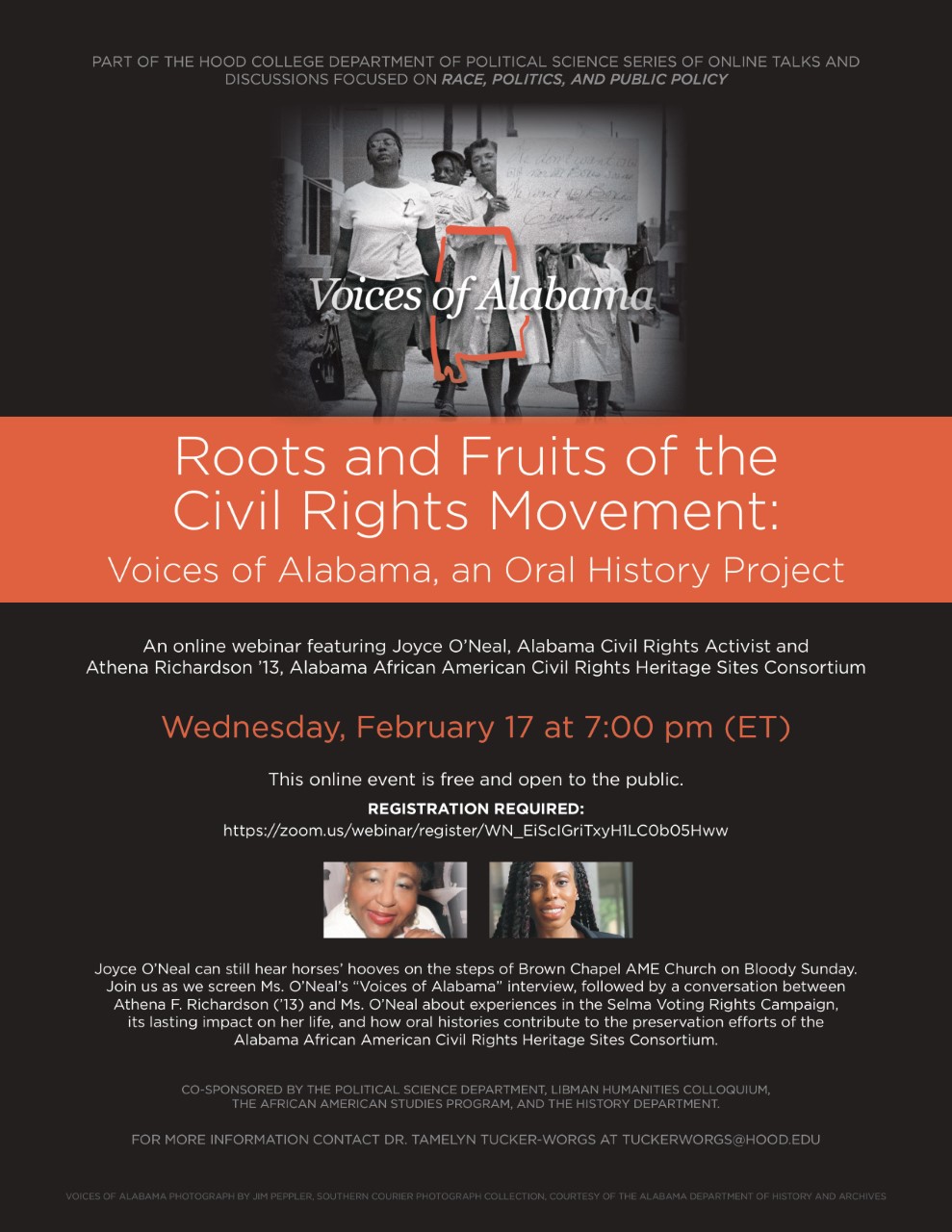
By Jacob Russell//
On March 7, 1965, 16-year-old Joyce O’Neal, had just finished attending a regular Sunday service when she began to hear screaming and the clopping of horses’ hooves on the steps of Brown Chapel AME Church in Selma, Alabama.
When O’Neal ran outside the church doors, she was greeted with unmitigated carnage. “There were people with gashes in their heads. Some of our classmates were in the streets, trying to pull their clothing off because it was so full of tear-gas,” O’Neal recalled.
O’Neal spoke in a webinar, “The Roots and Fruits of the Civil Rights Movement: Voices of Alabama, an Oral History Project,” which was sponsored by Hood’s political science department on Feb. 17. The event was co-sponsored by the Sophia Libman Humanities Colloquium, African American Studies Program and the history department.
O’Neal said she remembers the shock of seeing horses ride up the church steps, with the riders unwaveringly beating her own people with clubs and batons. For O’Neal, Brown Chapel was a sanctuary, a sacred place. She had been baptized, sang, prayed and rejoiced in the very same building that had been turned into a warzone.
For every person beaten within inches of their lives, or any individual who bore witness first-hand to the sheer capability for cruelty that people possess, this otherwise ordinary day became known as Bloody Sunday.
O’Neal grew up in an area that became known as the hotbed for the Civil Rights Movement of 1965.
Throughout her life and to this very day, O’Neal has been dedicated to church service. Although she grew up in an age of unmitigated segregation, for many black people churches served as a way of feeling fellowship that breached through the cracks of societal separation. In church, she never felt alone, she never felt like there wasn’t any hope for better days, and she could temporarily forget about the outside world.
Then Bloody Sunday happened, and suddenly church no longer felt disconnected from the violence her people faced. Once the chaos dialed down, O’Neal saw something that gave her a tinge of hope.
“People, complete strangers, came to help. They had come at great risk, they couldn’t even park their cars in Selma,” O’Neal said. “Seeing them come into the church to offer their help really warmed my heart. It made me understand that we are not alone, there are others willing to face this fight with us.”
O’Neal participated in both civil rights marches in Alabama that happened after Bloody Sunday. She remembers the name-calling and the stares full of hatred. Bloody Sunday ended up serving as one of the key events leading to the eventual passing of the Voting Rights Act of 1965.
To this day, O’Neal remains engaged in social justice work and participates in historic retelling events to remind people just how close American society still is to the Jim Crow era.
In America’s current political climate, O’Neal says that she sees the past repeating itself, but also extended a message of hope for today’s generation of social justice activists.
“Be committed to the cause,” she said. “Don’t be temporary. Everyone has a role to play. Fight, and continue to fight.”




Be the first to comment